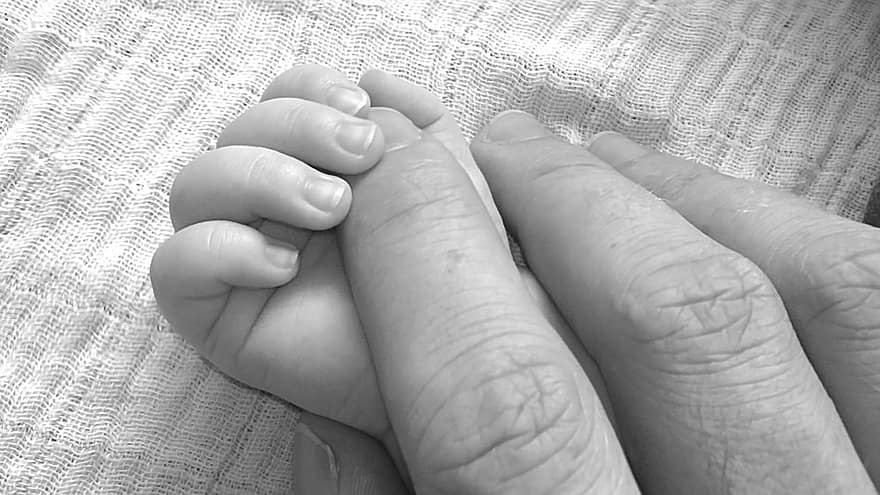Now that your newborn is home, life may seem overwhelming. However, caring for your baby will get easier with time and experience. During the first weeks, you will spend most of your time comforting, feeding, and changing diapers. But you will eventually learn to interpret your baby’s cries and anticipate their needs and wants.
As always, it is vital to develop a good relationship with your newborn’s pediatric healthcare provider. Be sure to attend all of your baby’s appointments and reach out with your questions or concerns.
At Home Newborn Care
Food
Newborns begin by eating on demand. You breastfeed or bottle-feed when your infant is hungry, and may not be able to follow a feeding schedule. Breastfed babies need to eat every 1-3 hours or 10-12 times per 24 hours, depending on your child’s hunger. Formula-fed babies need to eat less frequently, with about 6-10 feedings every 24 hours. Infants nurse or drink from the bottle for just a few minutes, then build up to longer feeds. Be sure to wake your baby to eat if they are sleeping too long, or going without feedings.
Sleep
Ensure that your newborn has a place to sleep that is flat and free of any objects, blankets, or hazards. Lay your baby on their back to sleep to decrease the risk of SIDS (sudden infant death syndrome).
Keep in mind that babies sleep for about 18 hours a day at first. They sleep in short bursts, waking every 2-3 hours, and sleep through loud noises. However, after a few months, they will be more sensitive to noise while they sleep.
Diapers
Your infant’s first few diapers may have meconium, a black-looking stool. Don’t be alarmed – this is normal. They will also produce less urine, with only about 1-3 wet diapers per day for the first week. After the first few weeks, they will have 8-12 diaper changes per day. Check your infant’s diaper every 2 hours to prevent diaper rash.
Keep an eye on their diaper and their stool color so that you can better tell if they are dehydrated or having digestion issues. Babies with diarrhea can become dehydrated, so pay attention to what they are producing.
Umbilical Cord
Keep the umbilical cord stump clean. Clean the stump gently with soap and water, or a cotton swab with water, then pat dry with a soft cloth. Keeping the stump dry will help it to fall off and heal faster.
When do I contact my pediatric healthcare provider about my newborn?
• Temperatures over 100.7°F
• No wet diaper for 6+ hours
• Irregular bowel movements or strong-smelling urine that is dark in color
• Yellowing skin or whites of the eyes
• Pus or red skin around the umbilical cord stump
• Crying that is unusual in sound or in the length of time
• Your baby is not waking up to feed, seems too tired to eat, or is uninterested in eating.
• Your baby is abnormally fussy.
For questions or comments, please respond to this post or contact us!




